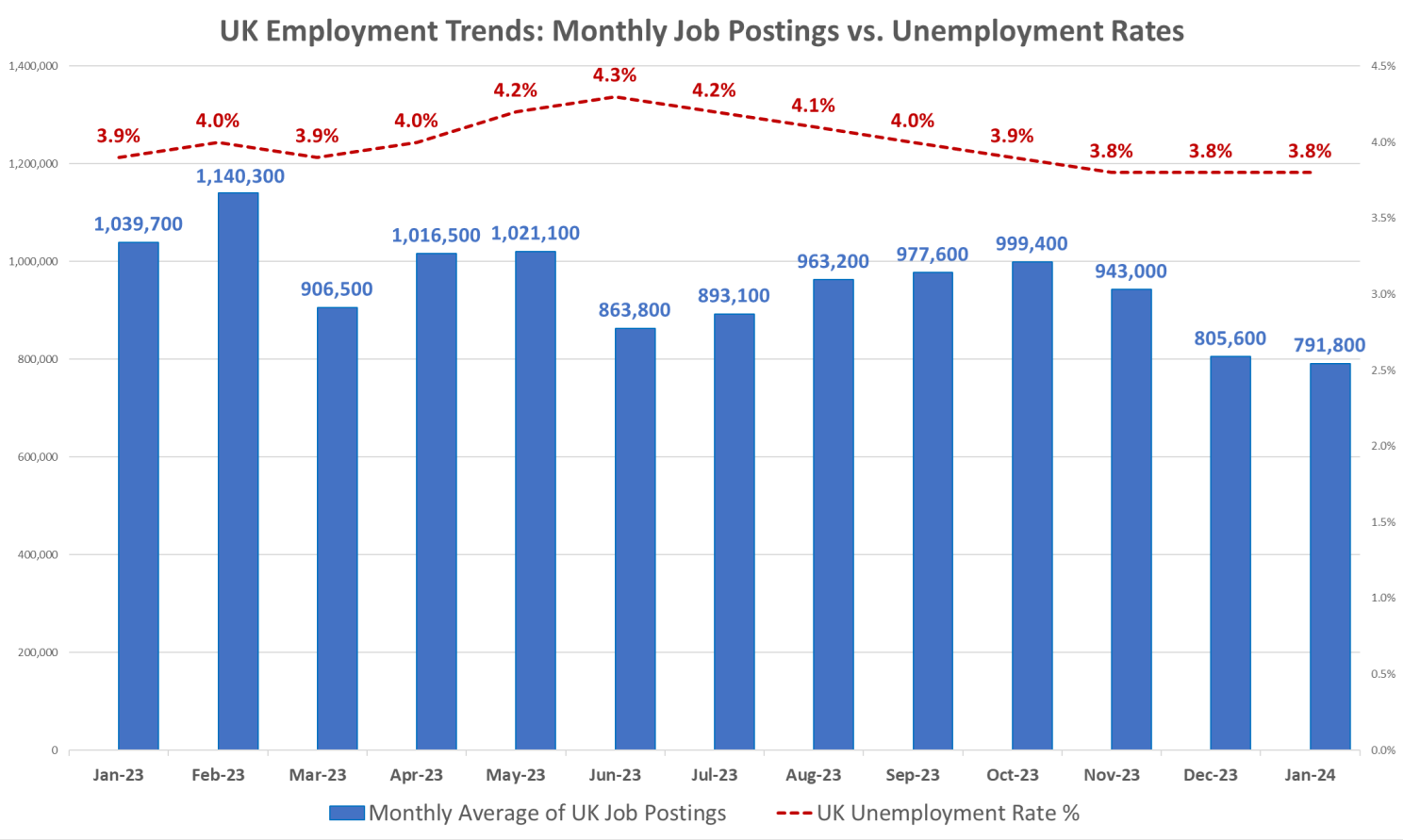The UK’s hiring landscape fluctuated a fair bit in 2023, but what can we expect this year? The UK’s noticeable decline in job postings stems from increasing oil and gas demand and The Bank of England offsetting inflation through increased interest rates. However, this only tells part of the story, as Janine Chidlow, managing director at WilsonHCG, cautions that the limited response numbers mean taking a “more considered approach” is wise.
Holistically, things are looking up. Despite its ongoing economic challenges, the UK’s unemployment rate has remained relatively stable, hovering around 4% throughout 2023 and 3.8% in January 2024 (see diagram below).
Here are additional employment trends to help inform your talent strategy:
UK employment trends

- It’s estimated the UK economy contracted by a cumulative 0.5% across Q3 and Q4 of 2023, affecting job market growth (ONS)
- The quarterly average job postings in Q3 and Q4 2023 decreased by 13.6% and 16.2% respectively compared to the January 2024 job posting average (Claro)
- The UK's three-month job postings average experienced a decrease of 6.5% from the last year (ONS)
- Despite a slightly higher six-month average at 913,433, the decrease remained 13.3% when compared to January 2024 (Claro)
- The Consumer Prices Index indicates owner occupiers’ housing costs (CPIH) rising by 4.2% in the 12 months to January 2024 (this is significantly above the Bank of England’s target inflation rate of 2%)
- Annual growth in total earnings was 5.8% in Q4 2023, and annual growth in employees’ average regular earnings was 6.2%, which is a 1.4% and 1.8% increase when adjusted for inflation (ONS)
From data to action: Skills-based hiring is on the rise
To help tackle skills shortages and boost UK productivity, all points lead to a similar outcome — the acknowledgment for organizational transformation. A new way of working is already here thanks to generative AI; to weather the ongoing storms of economic instability, it’s vital to invest in a skills-based hiring model.
Taking a holistic, total talent approach to skills-based hiring must be a priority in 2024. This includes businesses examining their entire skills taxonomy and identifying where they’re losing out to competition, as well as upskilling both new and existing employees. The nature of jobs will rapidly change in the coming decade due to generative AI, rising retirement ages and more.
For more data and insights from our talent intelligence, subscribe to our newsletter and follow us on LinkedIn.
